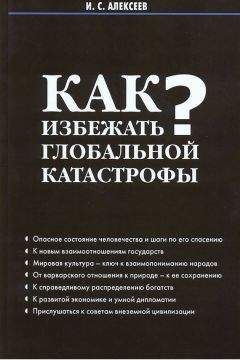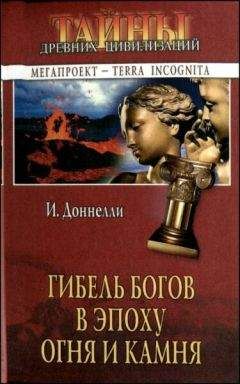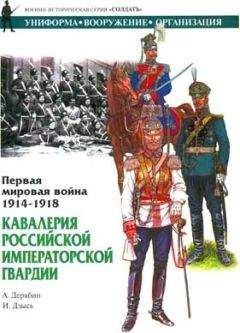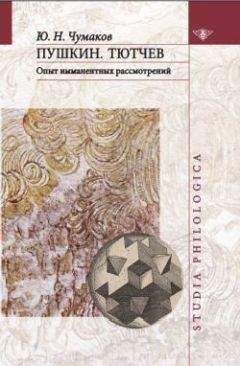Юрий Слёзкин - Эра Меркурия

Все авторские права соблюдены. Напишите нам, если Вы не согласны.
Описание книги "Эра Меркурия"
Описание и краткое содержание "Эра Меркурия" читать бесплатно онлайн.
38
Granovetter, The Economic Sociology, 143; see also Bonacich, A Theory of Middleman Minorities, 586–587; and van den Berghe, The Ethnic Phenomenon, 139–144.
39
Цитируется в: Albert S. Lindemann. Esau’s Tears: Modern Anti-Semitism and the Rise of the Jews. Cambridge: Cambridge University Press, 1997, 5.
40
Luhrmann, The Good Parsi, 50.
41
Berland, Kanjar Social Organization, 249; Gmelch, Groups That Don’t Want In, 314; Maurice Samuel. The World of Sholom Aleichem. New York: Alfred A. Knopf, 1943)], 131.
42
Detienne and Vernant, Cunning Intelligence, 47–48.
43
Berland, Kanjar Social Organization, 249.
44
Gmelch, Groups That Don’t Want In, 314.
45
Jacob Katz. Out of the Ghetto: The Social Background of Jewish Emancipation, 1770–1870. Cambridge: Harvard University Press, 1973, 22.
46
Сравни: Gellner, Nations and Nationalism, 103–109; Kotkin, Tribes, passim.
47
Luhrmann, The Good Parsi, 91–95, 119; Jamsheed K. Choksy, Evil, Good, and Gender: Facets of the Feminine in Zoroastrian Religious History. New York: Peter Lang, 2002, 109.
48
Dario A. Euraque. The Arab-Jewish Economic Presence in San Pedro Sula, the Industrial Capital of Honduras: Formative Years, 1880s–1930s”, in Ignacio Klich and Jeffrey Lesser, eds. Arab and Jewish Immigrants in Latin America: Images and Realities. London: Frank Cass, 1998, 95, 109; Clark S. Knowlton. The Social and Spatial Mobility of the Syrian and Lebanese Community in Sao Paulo, Brazil, in Hourani and Shehadi, The Lebanese in the World, 292–293, 302–303; David Nicholls. Lebanese of the Antilles: Haiti, Dominican Republic, Jamaica, and Trinidad, in Hourani and Shehadi, The Lebanese in the World, 339–360; Crowley, The Levantine Arabs, 139; Nancie L. Gonzalez. Dollar, Dove, and Eagle: One Hundred Years of Palestinian Migration to Honduras. Ann Arbor: University of Michigan Press, 1992, 93–100; Amy Chua. World on Fire: How Exporting Free Market Democracy Breeds Ethnic Hatred and Global Instability. New York: Doubleday, 2003, 116, 149–150.
49
David Himbara. Kenyan Capitalists, the State, and Development. Boulder, Colo.: Lynne Rienner Publishers, 1994, 45; Kotkin, Tribes, 103, 205–209, 229; Sowell, Migrations and Cultures, 310–311, 344; Chua, World on Fire, 113, 157–158.
50
Chua, World on Fire, 3, 36–37, 43, 34–35; Bambang Harymurti, Challenges of Change in Indonesia // Journal of Democracy 10, № 4 (1999): 9–10; Kotkin, Tribes, 165–200; Sowell, Migrations and Cultures, 175–176.
51
См., к примеру: Robert E. Kennedy, Jr. The Protestant Ethic and the Parsis // American Journal of Sociology 68, № 1 (July 1962): 11–20; Balwant Nevaskar. Capitalists without Capitalism: The Jains of India and the Quakers of the West. Westport, Conn: Greenwood, 1971; Peter L. Berger and Hsin-Huang Michael Hsiao, eds. In Search of an East Asian Development Mode! New Brunswick, N. J.: Transaction Books, 1988; S. Gordon Redding. Weak Organizations and Strong Linkages: Managerial Ideology and Chinese Family Business Networks, in Gary G. Hamilton, ed. Asian Business Networks. Berlin: Walter de Gruyter, 1996, 27–42; Robert N. Bellah. Tokugawa Religion: The Cultural Roots of Modern Japan; Sombart, The Jews and Modern Capitalism. New York: Free Press, 1985. Макс Вебер пытается доказать, что только христиане-протестанты могли создать современный капитализм, но при этом, очевидно, исходит из того, что, будучи созданным, капитализм находит некоторые религии (включая и приведенные в нашем списке) более подходящими, чем другие. См. его Sociology of Religion, гл. XV–XVI, и в особенности Ancient Judaism.
52
Sowell, Migrations and Cultures, 19, 375. Косвенные предположения того же рода см. в Bonacich, “A Theory of Middleman Minorities”, 588; Gonzalez, Dollar, Dove, and Eagle, 81–92; Curtin, Cross-Cultural Trade, passim.
53
См. в особенности: Wong-Siu-lun, Chinese Entrepreneurs and Business Trust; S. Gordon Redding, Weak Organizations and Strong Linkages: Managerial Ideology and Chinese Family Business Networks; and Gary G. Hamilton. The Organizational Foundations of Western and Chinese Commerce: A Historical and Comparative Analysis, and The Theoretical Significance of Asian Business Networks, in Gary G. Hamilton, ed. Asian Business Networks. Berlin: Walter de Gruyter, 1996, 13–26, 27–42, 43–58 and 283–298; Davis, Social Relations in a Philippine Market, 199–200; Granovetter, The Economic Sociology, 143–146; van den Berghe, The Ethnic Phenomenon, 140–143.
54
Francis Fukuyama. Trust: The Social Virtues and the Creation of Prosperity. New York: Free Press, 1995, 74, 85, 97–112.
55
Fukuyama, Там же, passim.
56
Eitzen, Two Minorities, 223; см. также: Pan, Sons of the Yellow Emperor, 31–34.
57
Nicholls, Lebanese of the Antilles, 348–349; Brenda Gayle Plummer, Race, Nationality, and Trade in the Caribbean: The Syrians in Haiti, 1903–1934 // International History Review 3, № 4 (October 1981): 517–539; Brenda Gayle Plummer. Between Privilege and Opprobrium: The Arabs and Jews in Haiti, in Klich and Lesser, Arab and Jewish Immigrants, 88–89.
58
Van der Laan, The Lebanese Traders, 4–5; Winder, The Lebanese in West Africa, 300; Anthony Reid, Entrepreneurial Minorities, Nationalism, and the State, in Chirot and Reid, Essential Outsiders, 56, 69 n. 61. См. также: Kasian Tejapira, Imagined Uncommunity: The Lookjin Middle Class and Thai Official Nationalism, in Chirot and Reid, Essential Outsiders, 75–98.
59
Van den Berghe, The Ethnic Phenomenon, 155; Bharati, The Asians in East Africa, 97–98; Seidenberg, Mercantile Adventurers, 203–204; Chua, World on Fire, 114. Амин цитируется по Los Angeles Times, August 14, 1972, процитированной в: Bonacich, A Theory of Middleman Minorities, 591.
60
Pan, Sons of the Yellow Emperor, 213–214, 215–219; Chua, World on Fire, 36, 44–45; Mary F. Somers Heidhues. Southeast Asia’s Chinese Minorities. Hawthorn, Victoria, Australia: Longman, 1974, 80–86; Garth Alexander. Silent Invasion: The Chinese in Southeast Asia. London: Macdonald, 1973, 130–143; Ben Kiernan, Kampuchea’s Ethnic Chinese under Pol Pot // Journal of Contemporary Asia 16, № 1 (1986): 18–29; Wu and Wu, Economic Development, 39–40; Eitzen, Two Minorities, 224–225; Reid, Entrepreneurial Minorities, 61; Harymurti, “]Challenges of Change, 9–10. Последняя цитата взята из: Abidin Kusno. Remembering/Forgetting the May Riots: Architecture, Violence, and the Making of Chinese Cultures in Post – 1998 Jakarta // Public Culture 15, № 1 (2003): 149.
61
См. главу 1, ссылки 50 и 52, в особенности Hamilton, The Organizational Foundations.
62
Nelson, The Idea of Usury.
63
Там же, xvi – xvii.
64
Цитата взята из van den Berghe, The Ethnic Phenomenon, 140. См. также: Bonacich, А Theory of Middleman Minorities, 589.
65
Heinrich Heine. The Prose Writings of Heinrich Heine, ed. Havelock Ellis. New York: Arno Press, 1973, 313.
66
Nelson, The Idea of Usury, xvi.
67
Hans Aarslef. From Locke to Saussure: Essays on the Study of Language and Intellectual History. Minneapolis: University of Minnesota Press, 1982, 281–282; Maurice Olender. The Languages of Paradise: Race, Religion, and Philology in the Nineteenth Century. Cambridge: Harvard University Press, 1992, p. 1–5; R. H. Robins. The History of Language Classification, in Thomas A. Sebeok, ed. Current Trends in Linguistics, vol. 2. The Hague: Mouton, 1973, 7–11; Slezkine, Naturalists versus Nations, 84 and passim.
68
William Blake. William Blake’s Writings, ed. G. E. Bentley, Jr. Oxford: Clarendon Press, 1978, 1: 318.
69
See Harold Bloom. Shakespeare: The Invention of the Human. New York: Riverhead, 1998.
70
Sutherland, The Body; John M. Efron. Medicine and the German Jews: A History. New Haven: Yale University Press, 2001.
71
Cf. Zygmunt Bauman. Modernity and the Holocaust. Ithaca: Cornell University Press, 1989.
72
Цитата о “третьем сословии” взята из: Sigmund Mayer. Ein jüdischer Kaufmann 1831–1911: Lebenserinnerungen. Leipzig, 1911, которая цитируется в: Steven Beller. Vienna and the Jews 1867–1938: A Cultural History. Cambridge: Cambridge University Press, 1989, 110. См. также с. 84–121.
73
David S. Landes. The Unbound Prometheus: Technological Change and Industrial Development in Western Europe from 1750 to the Present. Cambridge: Cambridge University Press, 1969: Ландес говорит в первую очередь о становлении современной технологии, но его метафора приложима к современной эпохе в целом; Calvin Goldscheider and Alan S. Zuckerman. The Transformation of the Jews. Chicago: University of Chicago Press, 1984, 89; Arthur Ruppin. The Jews in the Modern World. London: Macmillan, 1934, 144–147; Ezra Mendelsohn. The Jews of East Central Europe between the World Wars. Bloomington: Indiana University Press, 1987, 28; Joseph Jacobs. Jewish Contributions to Civilization: An Estimate. Philadelphia: Jewish Publication Society in America, 1919, 239; Saul Friedlander. Nazi Germany and the Jews: The Years of Persecution, 1933–1939. New York: Harper Collins, 1997, 77; Donald L. Niewyk. The Jews in Weimar Germany. Baton Rouge: Louisiana State University Press, 1980, 15; William O. Mc-Cagg. Jewish Wealth in Vienna, 1670–1918, in Michael K. Silber, ed. Jews in the Hungarian Economy 1760–1945: Studies Dedicated to Moshe Carmilly-Weinberger on His Eightieth Birthday. Jerusalem: Magnes Press, 1992, 75, 79–89; Siegmund Kaznelson, ed. Juden im deutschen Kulturbereich. Berlin: Jüdischer Vcrlag, 1959, 720–759; Niall Ferguson. The World’s Banker: The History of the House of Rothschild. London: Weidenfeld & Nicolson, 1998, 7 and passim; Robert S. Wistrich. Socialism and the Jews: The Dilemmas of Assimilation in Germany and Austria-Hungary. East Brunswick, N. J.: Associated University Presses, 1982, 61, 180–181.
74
McCagg, Jewish Wealth in Vienna, 74–91, William O. McCagg. Jewish Nobles and Geniuses in Modern Hungary. Boulder, Colo.: East European Quarterly, 1972, 16, 30, 42–43; Andrew C. Janos. The Politics of Backwardness in Hungary, 1825–1945. Princeton: Princeton University Press, 1982, 114, 225; Friedlander, Nazi Germany and the Jews, 80; Ruppin, The Jews in the Modern World, 207–211; Kaznelson, Juden im deutschen Kulturbereich, 760–797; Mendelsohn, The Jews of East Central Europe, 244–245; Jacobs, Jewish Contributions to Civilization, 237–246; Cecil Roth. The Jewish Contribution to Civilization. New York: Harper and Brothers, 1940, 278–283; György Lengyel. Hungarian Banking and Business Leaders between the Wars: Education, Ethnicity and Career Patterns, in Silber, Jews in the Hungarian Economy, 230; Nathaniel Katzburg. Hungary and the Jews: Policy and Legislation 1920–1943. Ramat Gan: Bar-llan University Press, 1981, 30; W. D. Rubinstein. The Left, the Right, and the Jews. London: Croom Helm, 1992, 13, 27; данные W. D. Rubinstein’a о еврейском участии в различных экономических элитах см.: в Niall Ferguson. The Cash Nexus: Money and Power in the Modern World, 1700–2000. London: Allen Lane, 2001, 378; Wistrich, Socialism and the Jews, 59–61, 180–181; о Ротшильдах см. в: Ferguson, The World’s Banker, 3, 1034–1036.
Подписывайтесь на наши страницы в социальных сетях.
Будьте в курсе последних книжных новинок, комментируйте, обсуждайте. Мы ждём Вас!
Похожие книги на "Эра Меркурия"
Книги похожие на "Эра Меркурия" читать онлайн или скачать бесплатно полные версии.
Мы рекомендуем Вам зарегистрироваться либо войти на сайт под своим именем.
Отзывы о "Юрий Слёзкин - Эра Меркурия"
Отзывы читателей о книге "Эра Меркурия", комментарии и мнения людей о произведении.
























